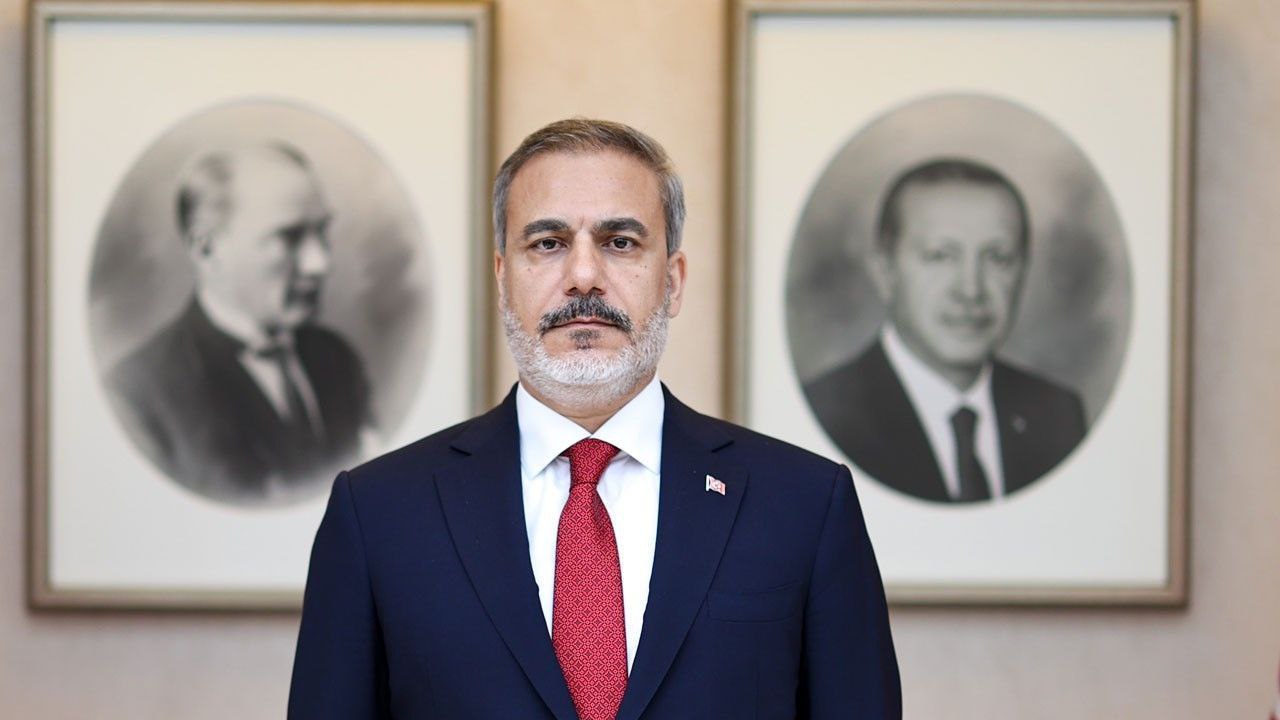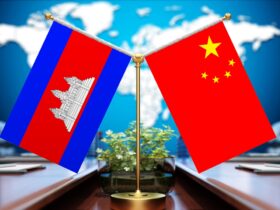By Fikret Akfırat
On August 7th, Türkiye’s Foreign Minister Hakan Fidan delivered an opening speech at the 14th Ambassadors Conference, outlining the government’s foreign policy approach and the course it intends to follow.
Fidan bases the government’s foreign policy understanding on the following principles:
“We will undauntedly work to bolster Türkiye’s position as an efficient, influential, fully independent actor that defines the international agenda and as a game-changer that can also spoil the plots of others. A fully national foreign policy independent of any outside influence, shaped by the values of our civilization, aiming to empower the integrity, security and prosperity of our state and nation based on our increasing capability – a foreign policy which will become a center of attraction.”
Some key points from Fidan’s assessment of international relations can also be highlighted as follows:
- The current international system is failing to generate peace, stability and justice for a majority of the world.
- Competition among major powers is increasing global tension and polarization.
- The international system, increasingly off-balance, leads to numerous unpredictable developments.
- The international system is simultaneously facing various challenges in political, military, economic, environmental, technological and social aspects.
- The prosperity brought by globalization is not being fairly shared on the international level.
- Organizations responsible for international and regional governance often prove inadequate in resolving inequality and sometimes they act unwillingly.
- In this context, some countries are seeking to find their way alone and to protectionism and discrimination in economic and social areas are rising.
- The current global system is undergoing a “complex and multiple crisis period.”
- History has shown us that such crises cannot persist indefinitely through bitter experiences.
- A need for change exists. So, how will this change occur and who will be the actors?
- The shape that the international system will take during this turning point depends on the policy choices and the capabilities of the leading states to implement those choices.
- Türkiye, with the leadership of President Erdoğan, will be one of these states.
What will Türkiye do?
So, what steps will Türkiye take as a result of such an assessment? Fidan lists the following:
“Our vision is to make Türkiye one of the foundational actors in the Century of Türkiye. We will work with other countries to establish an effective and inclusive international system that embraces humanity, eliminates global injustices, addresses economic inequalities and produces peace, security, stability and prosperity. With the awareness that major changes require strategic patience and strong will, Türkiye will proceed with modest but steady steps. While implementing these steps, we will act in line with four basic strategic goals. These are: To establish peace and security in our region, to establish our foreign relations on a structural basis, to develop an environment of prosperity and to advance our global goals.
Here, Hakan Fidan highlights “resolving conflicts in Syria through a political solution based on territorial integrity and transforming Syria into a place that is no longer a sanctuary for terrorist organizations or a theater for proxy wars”, “ensuring the continuation of peace in the Black Sea”, “recognizing the sovereign equality and equal international status of the Turkish Cypriots”, “putting Asia, Latin America and Africa Anew Initiatives on a more permanent and institutionalized footing” and “contributing to the solution of global issues for a fairer world order”. Fidan also explains Türkiye’s the policies in various regions from Libya to the Balkans, from Iraq to Palestine.
Where do we stand in the global confrontation?
Hakan Fidan describes the current situation as “the global order malfunctioning and in need of change”. So the solution is “a fairer international system.”
It’s a goal we all support. But, how do we achieve this? Contrary to Fidan’s approach, a “national policy” cannot be based on the discourse that “competition among major powers increases global tension and polarization”. Because this statement turns the reality of the current international situation upside down. Who does Fidan refer to by “major powers”? US, EU, Russia, and China. According to Fidan’s analysis, the source of global issues lies in the competition between the US-EU and Russia-China. But is this analysis accurate?
The owners of the international system that Fidan points out as malfunctioning are the Atlantic Alliance under US leadership. Just like Türkiye does Russia, China, and Iran are all trying to safeguard their sovereignty and territorial integrity against the hegemony of the Atlantic, alongside the rest of the world. This is what the objective global confrontation is. So, even if the levels of development are not the same, Russia and China, as well as Türkiye and other countries in Asia, Africa and South America, face the same threats and objectively stand on the same front.
External threats to Türkiye
Secondly, in Hakan Fidan’s analysis there isn’t a clear assessment about the external threats towards Türkiye. In Fidan’s analysis the “greatest threat to security, peace, and stability in our region” is attributed to “terrorist organizations and other proxy groups,” and it’s stated that “we will combat these forces by engaging in effective cooperation with our allies.” However, who are those “allies” and “the forces behind terrorist organizations”? This point remains unclear.
Moreover, these ambiguous assessments in the face of external threats towards Türkiye lead to unrealistic demands from the EU and NATO. Fidan states: “We emphasize once again that the European Union cannot truly be a global actor without Türkiye. We also expect all countries in NATO to equally take into account the security threats and concerns all of its members. In this context, we reiterate the call for some NATO countries to immediately end their open or veiled cooperation with the PKK in Syria and Iraq.”
Türkiye’s “national foreign policy” cannot be pursued by declaring the illusory goal of full EU membership and supporting NATO’s expansion into Asia, where Türkiye itself is located.

















Leave a Reply